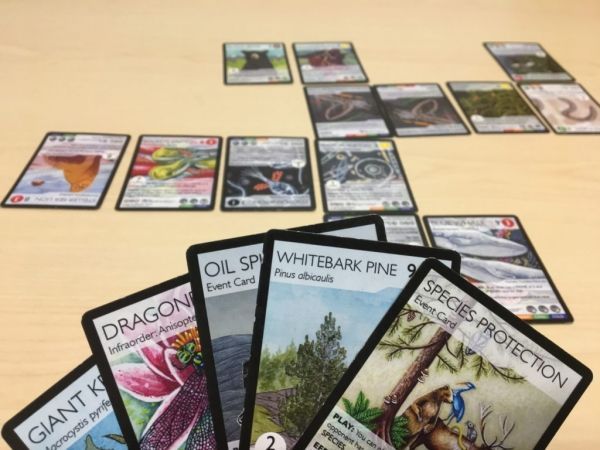Playing a Pokémon-like card game about ecology and biodiversity can result in broader knowledge of species and a better understanding of ecosystems than traditional teaching methods, like slideshows, according to new research from the University of British Columbia.
An open-source project launched in 2010 by UBC biologist David Ng and collaborators, the Phylo Trading Card Game works similarly to Pokémon trading cards, but uses real organisms and natural events instead of imaginary characters. While the Phylo project has proven immensely popular around the world, this is the first study to have tested its efficacy as a teaching and learning tool.
Researchers examined how people who played the game retained information about species and ecosystems, and how it impacted their conservation behaviour. They compared the results to people who watched an educational slideshow, and those who played a different game that did not focus on ecosystems.
“Participants who played the Phylo game weren’t just remembering iconic species like the blue whale and sea otter, but things like phytoplankton, zooplankton and mycorrhizal fungi,” said lead author Meggie Callahan, a PhD candidate in the Institute for Resources, Environment and Sustainability. “They would say things like, ‘I really needed this card because it was the base of my ecosystem,’ or, ‘When my partner destroyed my phytoplankton it killed all of my chain of species.’ Obviously, the game is sending a strong message that is sticking with them.”
Continue reading at University of British Columbia.
Image via University of British Columbia.


